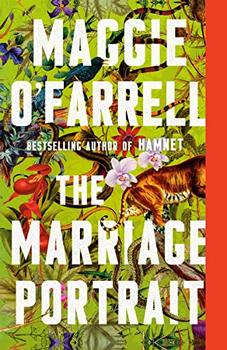Summary | Excerpt | Reading Guide | Reviews | Beyond the Book | Read-Alikes | Genres & Themes | Author Bio

Critics' Opinion:
Readers' Opinion:
First Published:
Sep 2022, 352 pages
Paperback:
Jul 2023, 352 pages
 Book Reviewed by:
Book Reviewed by:
Rose Rankin
Buy This Book
Please be aware that this discussion guide will contain spoilers!
Suggested Reading
Giovanni Boccaccio, The Decameron
Chris Bohjalian, The Light in the Ruins
Tracy Chevalier, Girl with a Pearl Earring
Daphne du Maurier, My Cousin Rachel
Allison Epstein, A Tip for the Hangman
C. W. Gortner, The Confessions of Catherine de Medici
Philippa Gregory, The Other Boleyn Girl
Frances Mayes, Women in Sunlight
Dominic Smith, The Last Painting of Sara de Vos
Heather Terrell, Brigid of Kildare
Unless otherwise stated, this discussion guide is reprinted with the permission of Vintage. Any page references refer to a USA edition of the book, usually the trade paperback version, and may vary in other editions.





The House on Biscayne Bay
by Chanel Cleeton
As death stalks a gothic mansion in Miami, the lives of two women intertwine as the past and present collide.

The Flower Sisters
by Michelle Collins Anderson
From the new Fannie Flagg of the Ozarks, a richly-woven story of family, forgiveness, and reinvention.

The Funeral Cryer by Wenyan Lu
Debut novelist Wenyan Lu brings us this witty yet profound story about one woman's midlife reawakening in contemporary rural China.
Your guide toexceptional books
BookBrowse seeks out and recommends the best in contemporary fiction and nonfiction—books that not only engage and entertain but also deepen our understanding of ourselves and the world around us.